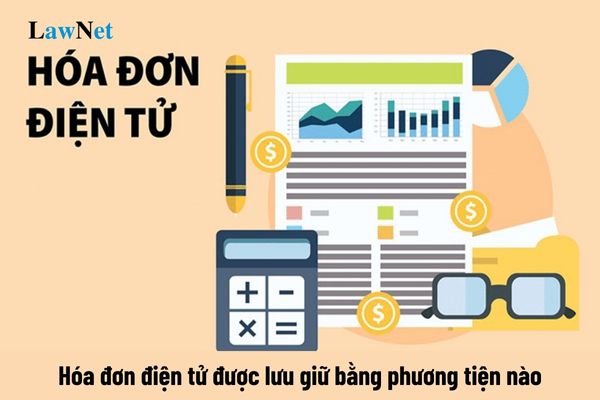What are regulations on retention of invoices in Vietnam?
What is an e-invoice in Vietnam?
According to Clause 2, Article 3 of Decree 123/2020/ND-CP, the regulations regarding e-invoices are as follows:
An e-invoice is an invoice with or without a tax authority code, presented in e-data form by organizations or individuals selling goods or providing services, created via e-means to record sales information, providing services according to legal regulations on accounting and tax law. This includes invoices generated from cash registers connected with e-data transfer to tax authorities, wherein:
- An e-invoice with a tax authority code is an e-invoice that a tax authority assigns a code before the organization or individual sells goods or provides services to the buyer.
+ The tax authority code on e-invoices includes a transaction number, which is a unique number generated by the tax authority's system, and a string of characters encoded by the tax authority based on the seller's information on the invoice.
- An e-invoice without a tax authority code is an e-invoice sent by the selling organization or service provider to the buyer without a tax authority code.
What are regulations on retention of invoices in Vietnam?
Based on Clause 2, Article 6 of Decree 123/2020/ND-CP, the method of storing e-invoices is defined as follows:
Storage and retention of invoices and Documents
- Invoices and documents are stored and retained ensuring:
a) Safety, security, integrity, completeness, not being altered, distorted during the entire retention period;
b) retained correctly and for the full period as per accounting law regulations.
2. e-invoices and e-documents are stored and retained by e-means. Agencies, organizations, and individuals have the right to choose and apply appropriate forms of preserving and storing e-invoices and e-documents according to their operational characteristics and technological capabilities. e-invoices and e-documents must be ready to print on paper or be retrieved when requested.
- Invoices printed by the tax authority, printed documents, self-printed must be stored and retained according to the following requirements:
a) Unissued invoices and documents are retained and stored in warehouses according to the retention policies for valuable documents.
b) Issued invoices and documents in accounting units are retained according to the regulations of retention and storage of accounting documents.
c) Issued invoices and documents in organizations, households, individuals that are not accounting units are retained and stored like the private assets of those organizations, households, individuals.
...
Thus, according to the above regulation, e-invoices are retained by e-means.

What are regulations on retention of invoices in Vietnam? (Image from the Internet)
What are responsibilities of sellers when using authenticated e-invoices in Vietnam?
According to Article 21 of Decree 123/2020/ND-CP, specific regulations on the responsibilities of sellers using authenticated e-invoices are as follows:
- Manage the username and password of the accounts granted by the tax authority.
- Create e-invoices for selling goods, providing services to send to the tax authority for code application and bear legal responsibility for the legality and accuracy of the e-invoice.
- Send authenticated e-invoices to the buyer immediately after receiving the e-invoice with a tax authority code.
What are prohibited acts related to invoices in Vietnam?
According to Article 5 of Decree 123/2020/ND-CP, the regulations on prohibited acts related to invoices are as follows:
- For tax officials:
+ Creating inconvenience, difficulty for organizations and individuals purchasing invoices, documents;
+ Concealing, colluding for organizations, individuals to use illegal invoices, documents;
+ Accepting bribes during inspection, verification regarding invoices.
- For organizations or individuals selling, supplying goods, services; organizations or individuals with related rights and obligations:
+ Engaging in fraudulent conduct like using illegal invoices, illegally using invoices;
+ Obstructing tax officials in the performance of their duties, notably any conduct that harms the health, dignity of tax officials during inspection, verification of invoices and documents;
+ Unauthorized access, altering, destroying information systems concerning invoices, documents;
+ Offering bribes or committing other acts relating to invoices, documents aimed at illicit profit.

